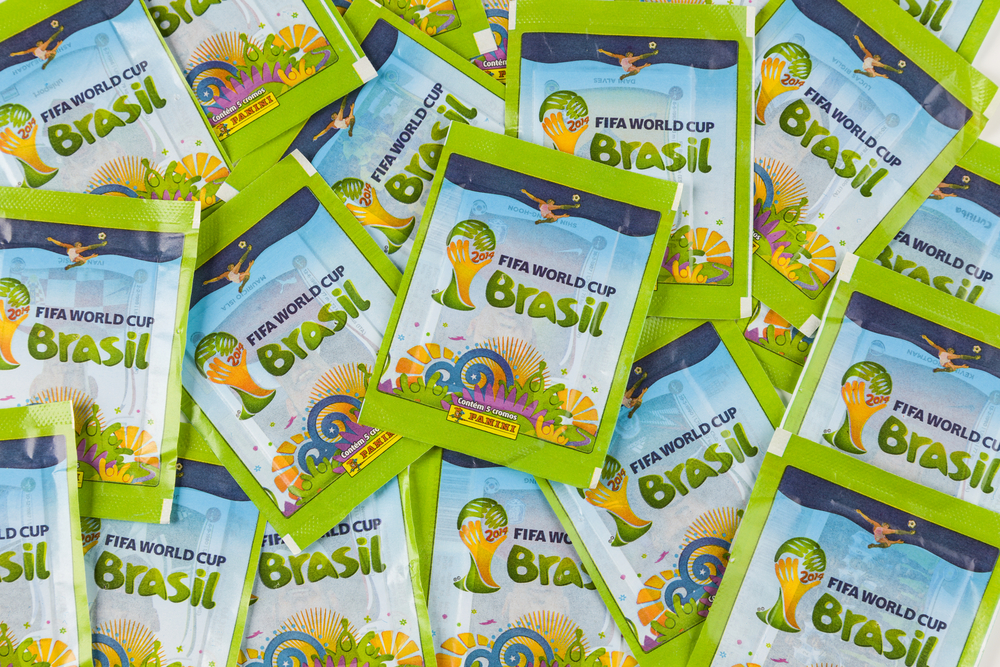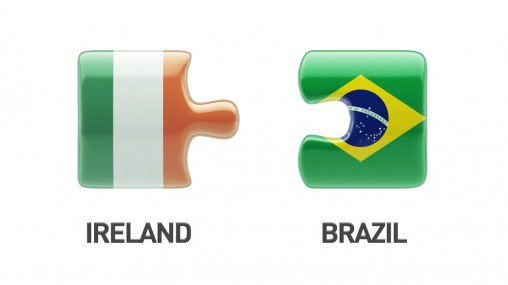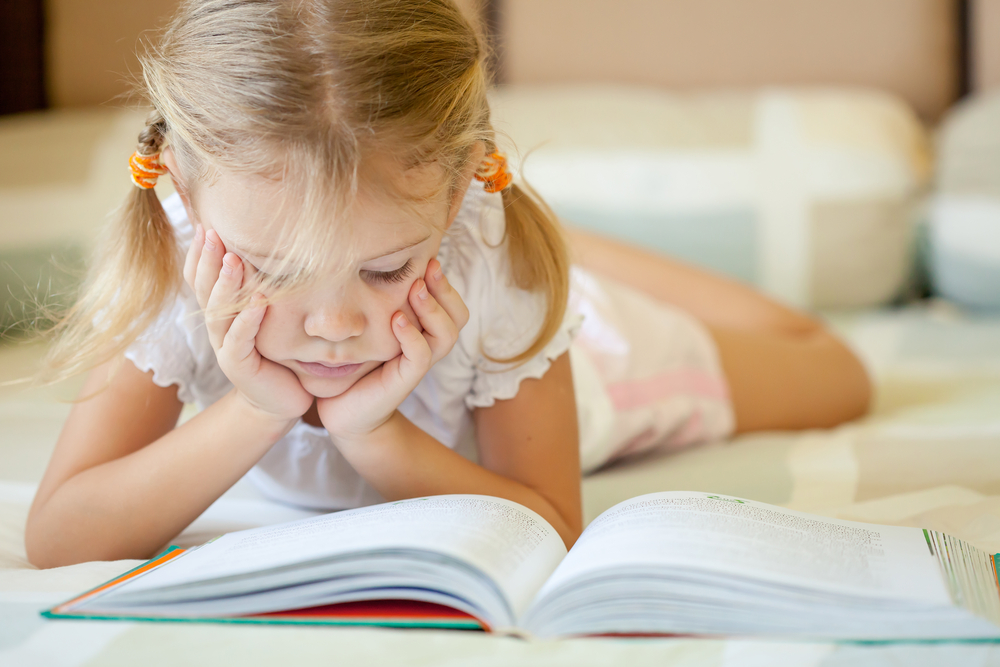INTERVIEW: Mr Ranko Rajović, PhD, member of the World MENSA Committee for gifted children and UNICEF associate for education
- Regarding the upcoming FIFA World Cup 2014 in Brazil, will you please tell us why you encourage collecting stickers and how this activity can influence the development of intelligence?
Before I explain why collecting stickers is good for kids, I would like to note that parents often make mistakes and provide their children with totally useless things to play with, or even let them do some harmful things, thinking they are doing something useful. Unfortunately, nowadays there are more and more children with developmental disabilities, dyslexia, and dyscalculia. Furthermore, almost every second child is suffering from a speech disorder, and it seems that the situation is getting worse. We have to educate parents, since they are the first and most important teachers.
Collecting stickers is a very useful game and I would recommend every parent to get their children involved in this activity, regardless of whether they are boys or girls. Let me digress, and mention that development of intellectual abilities depends on genetics and environment. It seems that we have forgotten this, as we think less about the environment of our children. However, the most important thing that we need to pay particular attention when we think about child’s environment is the fact that the connections between the brain cells extensively develop after birth, up to the age of five, and even up to the age of seven and twelve. After this period, new connections in the brain are still being formed, but not as fast and dynamic as in the childhood. There is medical evidence that intellectual abilities depend on the number of these connections (synapses), so it makes sense why childhood is an important period for child’s development.
Interesting enough, collecting stickers can help a lot in creating synapses (in my lectures people often wonder why I encourage collecting stickers so much, as if I worked for PANINI company). It’s worth noting that the development of mathematical and logical thinking is influenced by the classification games (when the child has to sort blocks according to colors – blue, green, white…) and seriation games (when the child arranges different blocks according to size – from the biggest to the smallest…). In most countries, these games are played in kindergarten, but they are designed in the way that the child has to look at the toys and do the task. This is a specific classification and seriation. In NTC Learning System that has already been implemented in 16 European countries. We introduce abstract classification and seriation, where collecting stickers play an important part.
The child who collects football stickers can learn a lot of things. For example, he can learn names of the players, countries they come from, and clubs they play for, apart from their national teams. Every day children look at the album, counting how much more stickers they need in order to complete the collection. They also exchange duplicate stickers with their friends. Sometimes they take home 2-3 extra stickers, or lose 2-3-4 stickers during the exchange. Thus, it makes them happy or sad, but that’s all part of this nice and useful game. Or, when they are exchanging stickers they can estimate the value of particular stickers. For example, if the child needs just 5 stickers to complete the album, he is ready to give much more stickers in exchange, in order to get these five missing ones etc.
- In lectures you often explain why parents shouldn’t buy too many gifts for their children. In your opinion, how often should we buy stickers to our kids, every day or less frequently?
Unfortunately, parents can spoil this game. I had similar experience with my son, four years ago when he was collecting PANINI stickers (FIFA WORLD CUP 2010). He was seven then and one afternoon he came to me asking: “Dad, I’m sorry for interrupting, but I want to ask you something“. I’ve noticed he interlaced his fingers, holding his hands as if he was washing them. But, he immediately said:”Never mind, I don’t want to ask you that. I’m sure it will make you angry“. I said he could feel free to ask me anything he wanted, but still he turned away and left. Shortly after, he came back saying that he will not ask me anything. This is my fourth child, so I have a lot of experience, and I realized that he tried to manipulate me, and I let him go. After two minutes, there he came again. This time I put aside the newspapers I was reading, ready to answer any question he wanted. Then finally, he said quickly: “I know that’s not true, but I still keep thinking that Igor’s dad loves him more than you love me“.
I’m sure it’s not easy for every parent to hear such a thing. If he told such thing to his mother, she would probably have cried and fulfilled the wish of her “sad and unhappy” child, so she could show him love. Fortunately, his mom was not present so I asked Danilo why he was thinking like that. He said that Igor has already completed his album thanks to his dad who bought him 20 packs of stickers every day. He thought it was because Igor’s dad loved Igor very much. I put him in the lap, hugged him and tried to explain that Igor wouldn’t be able to tell the names of the footballers and clubs they were playing for, nor other important details, such as when and where they were born. However, Danilo still insisted on buying more stickers. Until then we had a deal to buy one pack a day. I’ve decided to change that by saying he would still have one pack a day, except on Saturdays and Sundays, when he could get two packs instead of one. My kid was collecting stickers for two months. Every day he looked at his album, counting how much stickers were missing. He always had 20-30 duplicates to exchange with other children. He knew that some stickers are worth more and that by exchanging them he could get 2 or 3 extra ones. Sometimes they played games, hoping to win some more stickers. Thus, depending on the situation, they were very happy or sad if they won or lost a few duplicates.
During these two months he was developing mental classification and seriation during all day, playing with stickers and developing fine motor skills. On weekends he exchanged stickers with other children at the playgrounds to get the missing ones.
It is better to have this process last for a month or even longer, instead of completing the album in 10 days. We should not demonstrate love for our children by buying them lot of stickers, toys, and the latest tablet of video games. In fact, many toys won’t stimulate child’s development.
I’m not a psychologist, but if a child gets all that he wishes for he can develop even some negative character traits (selfishness, self-centered characteristics, with a low patience threshold if the parents refuse to buy him what he wants. These children learn how to manipulate their parents).
- Why flags, symbols, colors, different nationalities and races of players – promote intelligence? Why is this important?
Being able to recognize flags and players is just the small part of the bigger picture. There are still a lot of games that encourage development of intellectual abilities, especially playing with marbles, collecting napkins, cars, etc…
Recognizing symbols is the basis for development of mental classification and seriation, which we know can help develop mathematical logical thinking.
Stickers are very good tool for such development, since parents can ask the child: “which flag has blue color on it” or “which flag has a cross” or to buy a globe and see where are the countries he has learned about by collecting stickers. When he finds the place where a particular country is located (on a globe or atlas) then parents can ask questions such as: which country is bigger, Brazil or Italy, or they may even ask to line up three or four largest countries without looking at them (Belgium, Brazil, Bosnia, Germany). Parents should also encourage their children to exchange duplicate stickers, to learn how to play some of the games we used to play as children (throwing stickers, turning over the front images of the stickers with palms, odd €“even and similar). This part of the program is just 10% of NTC seminar, conducted by the Association of Educators of Vojvodina and the Association of Teachers of Serbia. We have also published the book “Child’s IQ €“ parents’ concern” with useful tips for parents to help them raise their children in safe and creative way and avoid making mistakes that can damage child’s development.
*This is an interview Mr Ranko Rajovic did for Slovenian national TV, which he enriched with some further explanations for our blog.
Featured photo: Beto Chagas / Shutterstock.com















